Links and resources cited in our fact sheet
Public schools budget about $3 per student per lunch:
http://www.pewtrusts.org/en/research-and-analysis/articles/2016/are-you-school-lunch-savvy
Public school spending:
https://www.ucpress.edu/book.php?isbn=9780520269880
USDA’s commodity program:
https://fns-prod.azureedge.net/sites/default/files/fdd/NSLP-White-Paper.pdf
Heavily processed foods:
https://www.ucpress.edu/book.php?isbn=9780520269880
Non-white community food deserts:
https://www.theatlantic.com/health/archive/2017/12/food-swamps/549275/
Processed foods have lower nutritional value:
https://www.nytimes.com/2011/12/04/opinion/sunday/school-lunches-and-the-food-industry.html
Robert Wood Johnson Foundation report:
https://cfpa.net/ChildNutrition/ChildNutrition_ExternalPublications/CommoditiesSchoolMeals-PolicyHighlight-RWJF-2008.pdf
Schools can be cited for placing water on the lunch line:
https://www.law.cornell.edu/uscode/text/42/1758
Serving cow’s milk equivalents:
https://www.gpo.gov/fdsys/pkg/CFR-2018-title7-vol4/xml/CFR-2018-title7-vol4-sec210-10.xml
Consumption of flavored milk:
http://uconnruddcenter.org/files/Pdfs/Student%20Acceptance%20of%20Plain%20Milk%20study.pdf
Chocolate milk contains 4–6 teaspoons of sugar:
https://www.motherjones.com/environment/2015/11/milk-companies-market-schools-fast-food/
Consuming dairy products has no consistent bone health benefit:
https://tinyurl.com/y99ogv8a
Cow’s milk may increase the risk of fractures:
https://www.ncbi.nlm.nih.gov/pmc/articles/PMC3983667/
Connection between cow’s milk protein and chronic constipation in children:
https://www.ncbi.nlm.nih.gov/pubmed/23340316
Removing fluid milk from the diet resolved more than two-thirds of cases:
https://www.ncbi.nlm.nih.gov/pubmed/9770556
How race influences school funding:
https://www.theatlantic.com/business/archive/2015/09/public-school-funding-and-the-role-of-race/408085/
Plant-based kids grow taller:
https://www.ncbi.nlm.nih.gov/pubmed/9023462
Plant-based kids are healthier:
https://www.ncbi.nlm.nih.gov/pubmed/19083442
Adult vegetarians tend to have lower rates of cancer:
https://www.ncbi.nlm.nih.gov/pubmed/19562864
Vegetarians’ cancer rates to be 25-50% below average:
https://www.ncbi.nlm.nih.gov/pubmed/1391130
Vegetarians are also less likely to die from heart disease than meat eaters:
https://www.bmj.com/content/308/6945/1667
U.S. Dietary Guidelines 2015-2020 recommend reduced meat consumption:
https://health.gov/dietaryguidelines/2015/guidelines/chapter-2/a-closer-look-at-current-intakes-and-recommended-shifts/
Meat-heavy diets are implicated in rapid diet-related disease growth:
https://tinyurl.com/ybgtmbb7
Livestock’s impact on climate:
http://www.fao.org/docrep/010/a0701e/a0701e00.HTM
Beef generates 20 times more greenhouse gas emissions than beans:
http://www.wri.org/publication/shifting-diets
We cannot reach goals of reducing greenhouse gas emissions by 2050 without reducing global meat consumption:
https://tinyurl.com/ycst93yt
Today, more than a third of crops go to feeding livestock:
http://iopscience.iop.org/article/10.1088/1748-9326/8/3/034015/pdf
1 out of 9 people on Earth do not have enough food to lead a healthy life:
http://www.foodaidfoundation.org/world-hunger-statistics.html
17% of the world’s freshwater is used for livestock production:
http://waterfootprint.org/media/downloads/Report-48-WaterFootprint-AnimalProducts-Vol1.pdf
It takes 4,068 gallons of water to produce 2 pounds of beef:
https://www.epa.gov/watersense/outdoors


